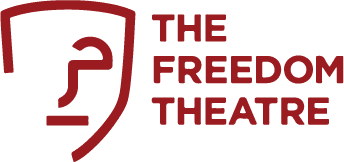To all our dear ones … friends of The Freedom Theatre
The Freedom Theatre is commemorating the tenth anniversary of the rejuvenation of this artistic sanctuary, following its destruction by the Israeli occupation during the invasion of the Jenin Refugee Camp.
With all of the events related to The Freedom Theatre, April sometimes brings with it creativity and progress, and other times it tries to trap us in a cycle of frustration and fear of the future. In this month, which is full of contradictions, the camp was destroyed in 2002, then the Theatre reopened in 2006, and the catastrophic assassination of Juliano occurred in 2011. In spite of this, April stands out every year as a period in which the theatre commemorates its resilience despite all the challenges and difficulties it has faced.
This year, and on the occasion of the tenth anniversary of The Freedom Theatre and the fifth anniversary of the death of Juliano, the big questions still remain. Who killed this Palestinian artist and great human being? Why was he killed? And how can this big question, which concerns art that is deeply rooted in facing all difficulties, and whose sources are the literature of the cultural resistance, still remain unanswered?
Juliano was not the only victim of the ignorance, tyranny and occupation, as many great leaders before him strived for positive change. The principles of freedom, justice and equality have always been confronted with difficulties. Yet, these principles continue to instil a set of values defining the Palestinian individual struggling for a free future and an all-inclusive nation givin room for constructive disagreement and debate required to build a democratic society.
We at The Freedom Theatre continue to harvest what Juliano has sown and to further sow it wherever culture can play a role. We are with the resistance and the society and the popular factions and the oppressed classes. As Naji al-Ali said, we join forces with those who are below, so that we can all rise towards equality. This includes actions that shed light on the prisoners, and dealing with the issue of the banished refugees, as well as discussing the daily societal needs of the community of which we are a part. We move from space to space, documenting the lives of people, and striving to make the dreams we see in the horizons come true.
As we do all this, we also pose a profound question to the powers that be, asking about the role of these agencies in activating cultural life in Palestine, and especially in Jenin, this place which suffers from marginalization and impoverishment. We hereby demand that there be a framework for culture, through which we will be able to build relations and networks, whose goal would be to increase awareness of our rights. This should be done through art and by defending these rights in every way possible. And if we carry this attempt to build a cultural, artistic program that would have cultural resistance as its motto, we will ensure that our work will always be part and parcel of the Palestinian resistance against occupations, primarily the Zionist occupation and its programs and ideas that aim to render our people ignorant and keep it within a circle of internal struggle. This, in turn, makes Palestinians self-conscious.
We have nothing left other than to protect and work towards fortifying ourselves through work that is culturally aware, and to follow in the footsteps of the cultural icons of the resistance movement who painted in their various works the most beautiful pictures of patriotism and connection to this land that is entitled to life, as was uttered by Mahmoud Darwish in one of his poems.
We shall persevere for our beautiful Palestine, striving for unlimited freedom.
The Freedom Theatre – Jenin Refugee Camp – Occupied Palestine
April 2016
